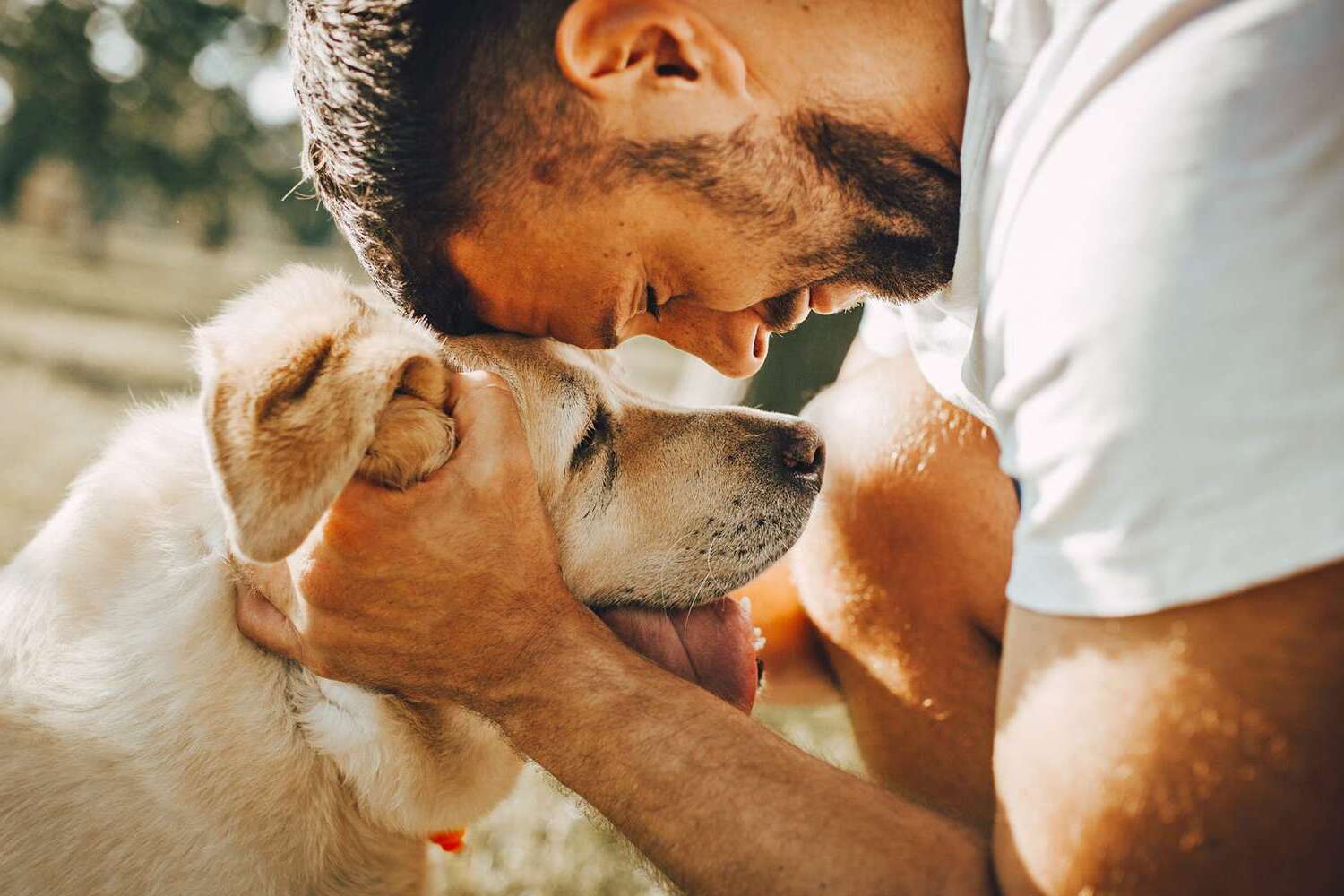
Dogs have been humans' loyal companions for thousands of years. These furry friends offer more than just wagging tails and playful barks. Did you know that dogs can understand up to 250 words and gestures? They also have an incredible sense of smell, which is 10,000 to 100,000 times more acute than humans. Ever wondered why your dog tilts its head when you talk? It's their way of trying to understand you better. Dogs also have a unique way of cooling down; they sweat through their paws! From their impressive intelligence to their quirky behaviors, dogs never cease to amaze. Ready to learn more about these fascinating creatures? Let's dive into 32 intriguing facts about our loyal companions.
Key Takeaways:
- Dogs have been loyal companions for over 15,000 years, serving as hunters, protectors, and even space pioneers. Their unique traits and behaviors make them extraordinary pets and valuable members of the family.
- Understanding a dog's dietary needs and health concerns is crucial for providing the best care. Dogs can live up to 20 years, and their companionship has been shown to improve human health and well-being.
Dogs Have Been Human Companions for Thousands of Years
Dogs have a long history with humans. Their loyalty and companionship have made them beloved pets worldwide. Here are some fascinating facts about these loyal companions.
-
Dogs were domesticated over 15,000 years ago. Early humans and wolves formed a mutually beneficial relationship, leading to the domestication of dogs.
-
There are over 340 dog breeds. Each breed has unique characteristics, from the tiny Chihuahua to the massive Great Dane.
-
Dogs have an incredible sense of smell. Their noses have up to 300 million olfactory receptors, compared to about 6 million in humans.
-
The Basenji is known as the "barkless dog." Instead of barking, it makes a unique yodel-like sound called a "baroo."
-
Dogs can understand up to 250 words and gestures. This makes them highly trainable and able to perform complex tasks.
Dogs Have Unique Physical Abilities
Dogs possess remarkable physical traits that set them apart from other animals. These abilities make them excellent hunters, protectors, and companions.
-
A Greyhound can run up to 45 miles per hour. This makes them one of the fastest dog breeds.
-
Dogs sweat through their paws. They also pant to regulate their body temperature.
-
A dog's sense of hearing is four times better than a human's. They can hear higher frequency sounds and detect noises from farther away.
-
Dogs have a third eyelid. This extra eyelid, called a nictitating membrane, helps protect their eyes and keep them moist.
-
Some dogs are natural swimmers. Breeds like the Labrador Retriever have webbed feet, making them excellent in water.
Dogs Have Played Important Roles in History
Throughout history, dogs have been more than just pets. They have served in various roles, from hunters to heroes.
-
Dogs were used in ancient warfare. They served as sentries, messengers, and even attack dogs.
-
Laika, a Soviet space dog, was the first animal to orbit Earth. She paved the way for human space exploration.
-
Dogs have been used in search and rescue missions. Their keen sense of smell helps locate missing persons in disasters.
-
The Newfoundland breed saved many lives at sea. Known for their swimming ability, they were used by fishermen to rescue people from drowning.
-
Dogs have served as therapy animals. They provide emotional support and comfort to people in hospitals, nursing homes, and disaster areas.
Dogs Have Unique Behaviors and Traits
Dogs exhibit a variety of behaviors that make them endearing and fascinating. Understanding these traits can help strengthen the bond between dogs and their owners.
-
Dogs wag their tails to communicate. The direction and speed of the wag can indicate different emotions.
-
Dogs have a "pack mentality." They see their human family as part of their pack and often look to them for guidance.
-
Dogs can dream. Like humans, dogs go through REM sleep, where dreaming occurs.
-
Dogs can be left- or right-pawed. Just like humans, dogs can show a preference for using one paw over the other.
-
Dogs have a unique nose print. Each dog's nose print is as unique as a human fingerprint.
Dogs Have Special Dietary Needs
Feeding dogs the right diet is crucial for their health and well-being. Here are some interesting facts about their dietary habits.
-
Dogs are omnivores. They can eat a variety of foods, including meat, vegetables, and grains.
-
Chocolate is toxic to dogs. It contains theobromine, which dogs cannot metabolize effectively.
-
Some dogs are lactose intolerant. Dairy products can cause digestive issues for these dogs.
-
Dogs need a balanced diet. Proper nutrition includes proteins, fats, carbohydrates, vitamins, and minerals.
-
Certain human foods are safe for dogs. Foods like carrots, apples, and plain cooked chicken can be healthy treats.
Dogs Have Unique Lifespans and Health Concerns
Understanding a dog's lifespan and health needs can help owners provide better care. Here are some facts about their longevity and health.
-
Small dog breeds tend to live longer. Breeds like the Chihuahua can live up to 20 years, while larger breeds often have shorter lifespans.
-
Dogs can suffer from anxiety. Separation anxiety is common, especially in dogs that are very attached to their owners.
-
Regular vet check-ups are essential. Preventative care can help detect and treat health issues early.
-
Dogs can get sunburned. Breeds with short or light-colored fur are particularly susceptible.
-
Dental health is important for dogs. Regular brushing and dental chews can help prevent dental diseases.
Dogs Have Unique Relationships with Humans
The bond between dogs and humans is special and unique. Here are some facts that highlight this extraordinary relationship.
-
Dogs can sense human emotions. They can pick up on cues like body language and tone of voice to understand how their owners feel.
-
Dogs have been shown to improve human health. Owning a dog can reduce stress, lower blood pressure, and increase physical activity.
The Heart of Loyalty
Dogs have been our loyal companions for thousands of years. Their unwavering loyalty, intelligence, and unique personalities make them more than just pets—they're family. From their incredible sense of smell to their ability to understand human emotions, dogs continue to amaze us. They’ve served in wars, helped in rescue missions, and provided emotional support to countless individuals.
Understanding these fascinating facts about dogs not only deepens our appreciation for them but also strengthens the bond we share. Whether it’s their ability to learn new tricks or their instinct to protect, dogs truly are remarkable creatures. Next time you look into your dog’s eyes, remember all the incredible traits that make them so special.
Cherish every moment with your furry friend, because their loyalty and love are truly one of a kind.
Frequently Asked Questions
Was this page helpful?
Our commitment to delivering trustworthy and engaging content is at the heart of what we do. Each fact on our site is contributed by real users like you, bringing a wealth of diverse insights and information. To ensure the highest standards of accuracy and reliability, our dedicated editors meticulously review each submission. This process guarantees that the facts we share are not only fascinating but also credible. Trust in our commitment to quality and authenticity as you explore and learn with us.


